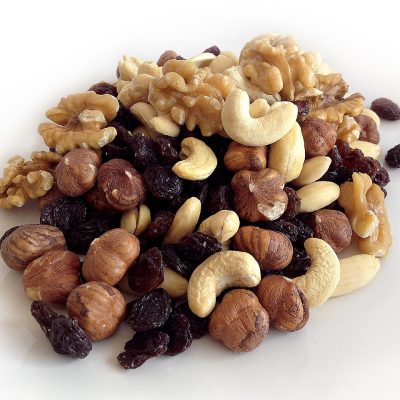It’s possible that those whose midlife diets are richer in omega-3 fatty acids have greater cognitive abilities and even more favorable brain shapes than those whose diets are less in these nutrients. Recent exploratory research on the topic was published in Neurology, the official medical journal of the American Academy of Neurology. Salmon, sardines, lake trout, and albacore tuna are just a few examples of (seafood) ______ is an essential omega-3 fatty acid. Fortified meals and nutritional supplements both include these fatty acids.
______ Is An Essential Omega-3 Fatty Acid.
To put it another way, “if individuals could increase their cognitive resilience and maybe stave off dementia with some easy modifications to their diet, that might have a significant influence on public health.” PhD Candidate Claudia L. Satizabal
Brain health may be improved by dietary changes, according to the study’s author and Ph.D. student at UT Health San Antonio, Claudia L. Satizabal. A significant public health effect might result from the discovery that dietary adjustments can boost people’s cognitive resilience and, perhaps, protect them from developing dementia. The good news is that our research indicates that even a low intake of omega-3 may be adequate to protect brain function. The current dietary recommendations from the American Heart Association recommend eating at least two servings of fish each week to enhance cardiovascular health.
Analysis – Critical Thinking
2,183 healthy adults (average age = 46) participated in the cross-sectional research. Omega-3 fatty acid content was analyzed. They were evaluated on a battery of tests to reveal they’re critical thinking level. The participants got brain scans to determine brain volume.
- Omega-3 fatty acids made up an average of 3.4% of the total fatty acids in the low group but 5.2% in the high group.
- As a rule of thumb, anything at or above 8% is excellent. Intermediate levels range between 4 and 8 percent.
- Low levels are below 4%.
Variable Findings By Claudia L. Satizabal
The findings were corrected for any confounding variables.
Additionally, a mathematical procedure was used to standardize the collected information. They found that those with bigger hippocampal sizes also had higher average scores on a test of abstract thinking.
- This is a part of the brain that is crucially involved in remembering.
- Additional study is needed to validate these findings.
- But it’s intriguing that omega-3 levels could have a role in boosting cognitive resilience even in middle-aged persons, as Satizabal put it.
In Closing
Omega-3 fatty acids did not appear to protect brain function, according to the researcher. Since the trial was a snapshot, the individuals were not monitored over time. Satizabal noted that although the research did include persons of various racial and ethnic backgrounds, the bulk of the sample consisted of non-Hispanic white adults, which might restrict the generalizability of the findings.
Feature image: Pixabay
Read more:





